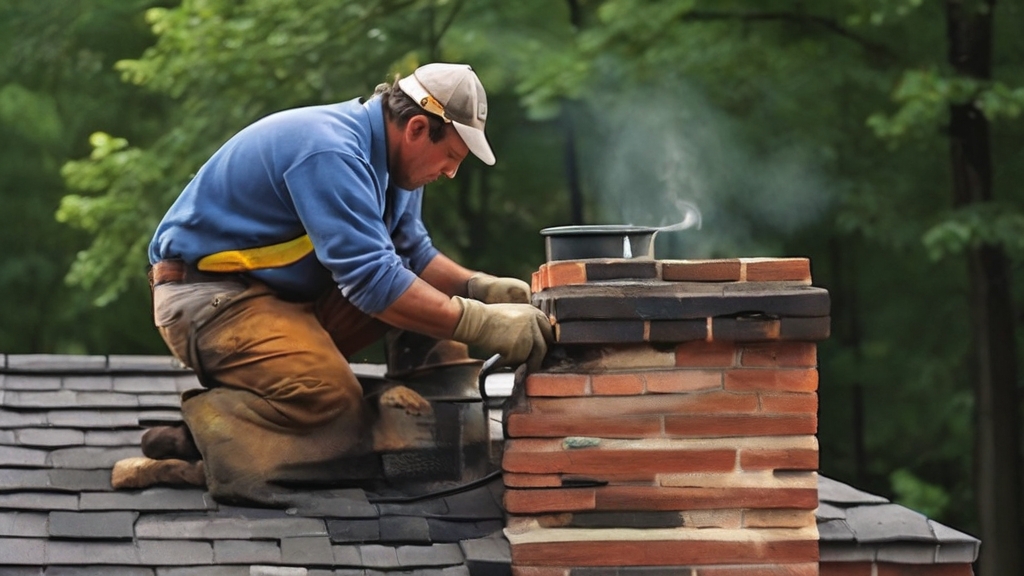Masonry, the art of building structures from individual units of brick, stone, or concrete, is as much about enduring beauty as it is about resilience. Yet, even the sturdiest masonry is not impervious to the elements. Understanding the impact of weather on masonry and taking proactive steps, especially during spring, is crucial for its longevity and aesthetics. In this 950-word article, we delve into the influence of weather on masonry and provide a comprehensive guide to prepare and protect your masonry for the spring season, backed by expert advice from Brick and Level professionals.
Understanding Weather’s Impact on Masonry
Masonry is continually exposed to environmental elements, which can lead to wear and deterioration over time. Factors like temperature fluctuations, moisture, and extreme weather events play a significant role in affecting the integrity of masonry work.
Temperature Fluctuations
Repeated freezing and thawing cycles in winter can cause expansion and contraction in masonry materials, leading to cracks and structural damage. Spring brings a welcome relief from these harsh conditions, but the residual effects often become apparent as the weather warms.
Moisture
Moisture is one of the biggest adversaries of masonry. Water can penetrate porous materials like bricks and stones, causing issues like efflorescence (white salt deposits) and weakening the structure. Spring’s rain and humidity levels can exacerbate these issues.
Extreme Weather Events
Storms, heavy rains, and other extreme weather conditions can cause immediate and visible damage to masonry structures, necessitating prompt repairs.
Preparing Masonry for the Spring Season
With spring’s arrival, it’s time to assess and address the winter’s toll on your masonry. Here’s a step-by-step guide to prepare your masonry for the season:
Inspection and Assessment
Begin with a thorough inspection of your masonry structures. Look for visible signs of damage such as cracks, loose bricks or stones, deteriorating mortar joints, and any water damage. Don’t overlook areas like chimneys, retaining walls, and patios.
Cleaning
Clean the masonry surfaces to remove dirt, debris, and any growths like moss or algae. Use a gentle, non-acidic cleaner and avoid high-pressure washing, which can damage the masonry.
Repair and Restoration
Address any damage found during the inspection. This might involve repointing (repairing mortar joints), replacing damaged bricks or stones, or sealing cracks. It’s crucial to use materials that match the existing masonry to maintain structural integrity and aesthetics.
Waterproofing
Consider applying a breathable waterproofing sealant to protect against moisture penetration. This step is particularly important for structures that are more exposed to the elements.
Drainage Check
Ensure that the area around your masonry structures has proper drainage. Water should be directed away from the foundation to prevent pooling and seepage.
Maintenance and Protection Tips
Regular maintenance is key to preserving the beauty and longevity of masonry. Here are some tips from Brick and Level professionals:
Regular Cleaning
Keep masonry clean from dirt, foliage, and other debris. This not only enhances appearance but also prevents the growth of harmful organisms like mold.
Prompt Repairs
Address minor issues promptly before they escalate into major problems. Small cracks or loose joints can quickly lead to more significant damage if left untreated.
Avoid De-icing Salts
In areas prone to snow and ice, avoid using de-icing salts on masonry surfaces as they can cause erosion and deterioration.
Prune Vegetation
Keep vegetation around masonry structures trimmed. Overgrown plants can retain moisture and their roots can cause structural damage.
Expert Advice from Brick and Level Professionals
At Brick and Level, our experts emphasize the importance of custom solutions for each unique masonry project. Here’s what they advise:
Choose the Right Materials
When repairing or restoring, it’s crucial to use materials compatible with the existing masonry. This ensures structural harmony and longevity.
Professional Assessment
For complex issues, seek a professional assessment. A trained eye can spot potential problems that might be overlooked by the untrained.
Focus on Quality
Never compromise on the quality of materials and workmanship. High-quality work might cost more upfront but saves money in the long run by reducing the need for frequent repairs.
The Importance of Timely Masonry Care
Proactive and regular maintenance of masonry cannot be overstated. It’s not just about preserving the aesthetic appeal; it’s about ensuring the safety and structural soundness of your property. Timely care extends the life of masonry work, maintaining its value and functionality for years to come.
Timely masonry care involves:
- Regular inspections and maintenance.
- Immediate attention to repairs and restorations.
- Using quality materials and expert services for any work required.
Neglecting these aspects can lead to costly and extensive repairs in the future. More importantly, it can compromise the safety of the structure.
Masonry is a timeless craft, offering beauty and durability. However, its longevity is contingent on how well it’s maintained, especially against the varying impacts of weather. As we welcome spring, let’s also embrace the responsibility of caring for our masonry structures. Whether it’s a historical building, a modern home, or a quaint garden wall, proper preparation and maintenance this spring will ensure that your masonry remains a source of pride and joy.
For expert advice, quality craftsmanship, and a commitment to the longevity of your masonry projects, turn to the professionals at Brick and Level. Let us help you prepare and protect your masonry this spring and beyond.

